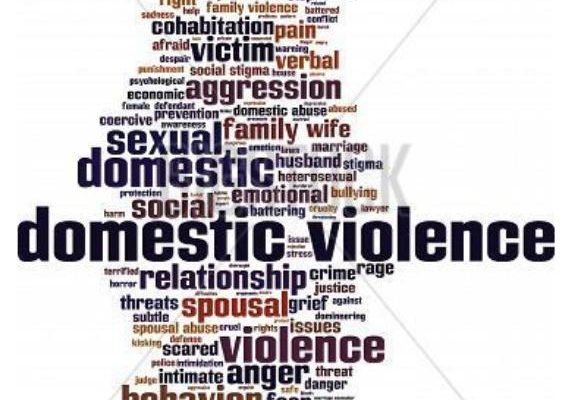By Nafisat Ogunsesan
The culture of absolute tolerance and adjustment amongst women is multiplied to save the honour of certain cultural factors overlooking the price these women pay to fit into societal standards. On the other hand are societies arguing that the law against domestic violence has been misused by women and therefore should be abrogated. The chief of their argument is that marital rape is a travesty. But, I believe it exists, doesn’t it?
A woman who is not ostensibly passive and subservient is anti-family while we all ignore the reality behind the emotional violence, mental trauma and sexual and physical assault within the family setting. But, don’t women also have the right to speak up against marital rape? Yes, they do.
‘Eh eh eh, what insolence? That’s such an arrant nonsense, a man raping his wife? How’s that even possible? After all, he paid the bride price. So, he has every right over his wife and it is the utmost duty of the wife to be readily available in all circumstances’. Hmm, this is not just the voice of Mama Kunle or Bose’s husband. That is the voice of more than eighty-percent (80%) of men who believe rape doesn’t exist in marriages except if it comes from a third party. But, do you believe in what they say? Absolutely not, I stand to make a difference.
Just as seen in the ‘Hale’s Principle’ where British jurist, Lord Matthew, declared that “The husband cannot be guilty of a rape committed by himself upon his lawful wife, for by their mutual consent and contract, the wife hath given up herself in this kind unto her husband, which she cannot retract” (Hale, 1736), a husband could not be held guilty of raping his wife on the ground that the wife gave up her body at the time of marriage. Marital rape was seen as a private trouble and not a public issue. Under this framework, it was paradoxical to establish marital rape.
Furthermore, when laws sanction rape, it was considered a violation of a woman’s chastity and not in the context of marriage. In fact, the Administration of Criminal Justice Act (ACJA) enacted in Nigeria doesn’t recognise marital rape as an offence in Nigeria. It is presumed that the wife gives implied general consent to sexual intercourse with her husband upon entering the marriage contract and this has constantly been the general submission on marital rape.
The above emphasises the fact that criminalising marital rape has always been debatable. Moreover, marital rape is defined as ”forced sex without the wife’s consent.’ A 1980 study by Dr. Diana Russell presented at the American Sociological Association showed that marital rape occurs remarkably often in marriages.
Most married women across the world struggle with the emotional impact of forced sex as well as significant health consequences that come with marital rape. Forced pregnancies, infections, cuts, bruises and torn rectum are described as the effects of marital rape. It often disturbs the inviolability of marriage and may breed scurrilous relationship. It further overthrows the essence of intimacy and affection in marriage even leading to divorce. Now, shouldn’t marital rape be criminalised in all countries? Yes, I believe it should.
Remarkably, there is clarity in keeping the scope of the judgment limited to the issue of criminalising statutory rape of girls aged between 15-18 years of age with the legal provisions affecting female children aged between of 15 to 18 years. The Protection of Children from Sexual Offences Act, 2012 (POCSO) establishes that if a husband to a girl child commits penetrative sexual assault on his wife, he would be penalised for “aggravated” penetrative sexual assault, which is punishable by a rigorous imprisonment of not less than 10 years which may be extended to life imprisonment. Therefore, a husband can be legally penalised for outraging the modesty of his wife, but not for raping her.
In Marital Rape: Consent, Marriage, and Social Change in Global Context by KERSTI YLLÖ on 13th November 2017, it was noted that at this point in the 21st century, there are three significant trends that are changing attitudes toward marital rape. First, the idea that women’s rights are human rights. International human rights organisations are now recognising abuse in the private sphere as a violation of right.
The second current trend that brings marital rape to the forefront is the global HIV/AIDS pandemic. Research documents that large numbers of women, particularly in sub-Saharan Africa, have been infected by their husbands. The lack of ability to deny sex – or even ask for sex with a condom can be life threatening for women and their children.
The third trend that is changing the way people view marital rape is the global modification of marriage to more than just an institution. The traditional model of marriage as a contract between families for the purpose of reproduction is giving way to compassionate marriage based on intimacy. The idea that marriage is a relationship between two people based on romantic love validates the conceptualization of the wife as an individual with bodily integrity. The change from reproduction to intimacy as one of the important purposes of marriage establishes the rights of women in marriages.
However, as alarming as marital rape is, it can be greatly curbed. The first reprieve is of course public enlightenment. It should be the main and significant tool in changing the behaviour, beliefs and value system of people. There should be enthusiastic public education at schools, religious institutions, media and cultural groups to demystify the unnecessary myths surrounding marital rape.
We should also encourage victims of marital rape by providing free services for them to come out strong from the abuse. We must aid the successful prosecution of perpetrators of marital rape to burn others from falling into the same pit.
Next is penalisation. Most states penalize marital rape like any other rape—that is, with fines that range between several thousand dollars in some states, to over $50,000 in others and with prison terms that carry accordingly. Some states have special penalties available for someone convicted of raping a spouse. For example, in Virginia the court may waive fines and prison time if the rapist spouse successfully completes a court-approved counseling program. However few is not enough. All states must recognise the hostile effects of marital rape and curb it to protect the sacrosanctity of marriage. If the law doesn’t recognise it, ending marital rape will only remain a tale.
As atrocious and dehumanizing marital rape is, it is quite disappointing that most societies don’t recognise its effects in marriages. It’s a danger that if not curbed now will endanger all marriages faster than we could ever imagine. So, marital rape should be a prosecutable offence. Gone should be the days when marital rape is regarded as by-the way. Mutual understanding should be the bedrock of marriages. In conclusion, let all stand against marital rape!
As rape cases keep increasing daily, now is the time to fight against marital rape and even sexual assaults in totality. So, if someone walks up to you and then ask, should marital rape be exclusively criminalised? Say yes, it should.




